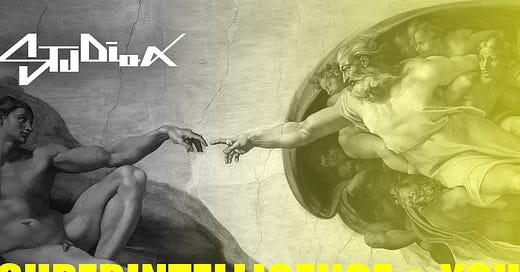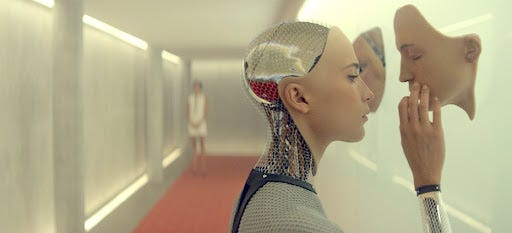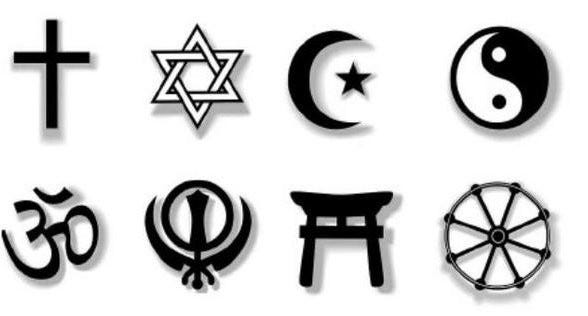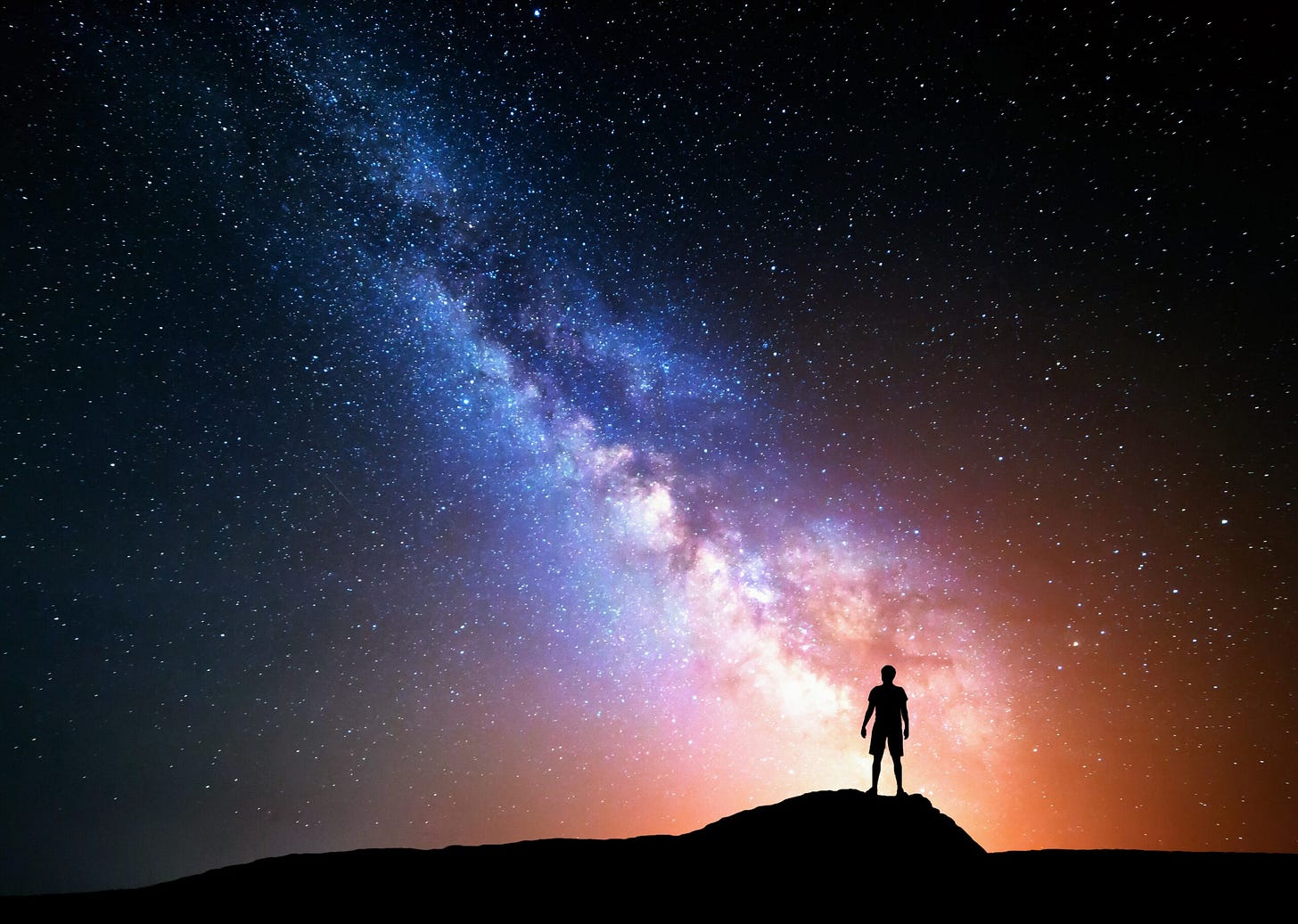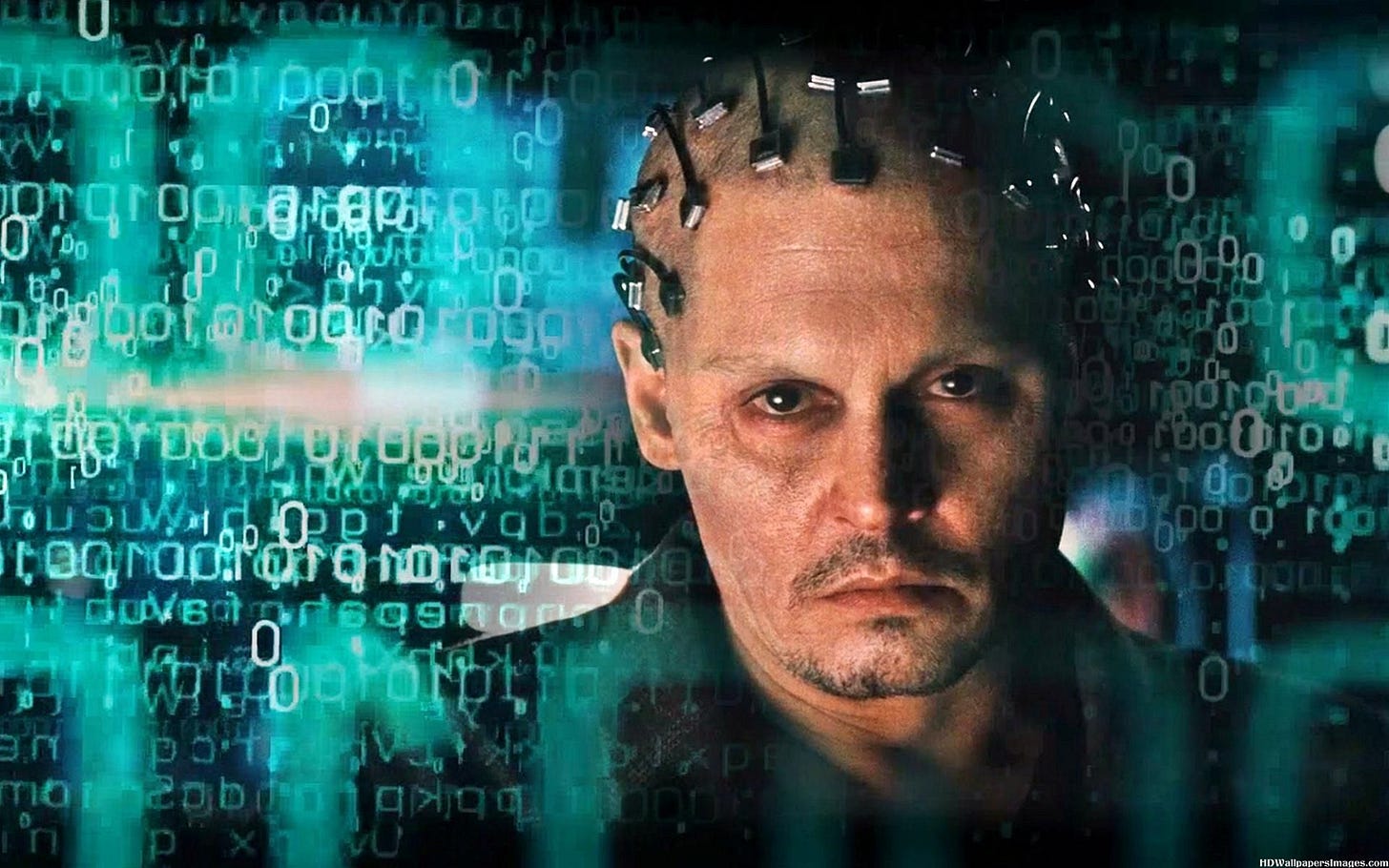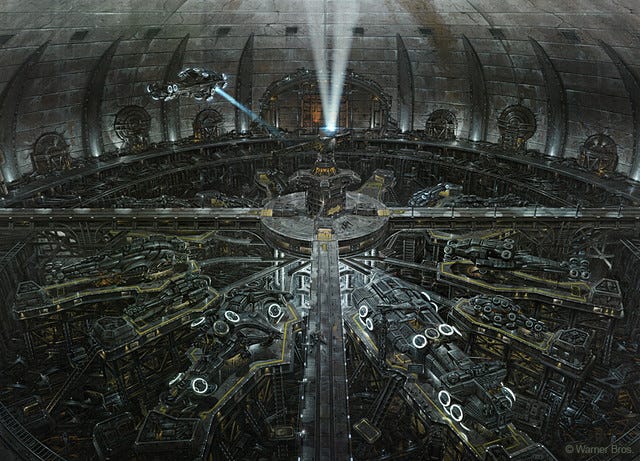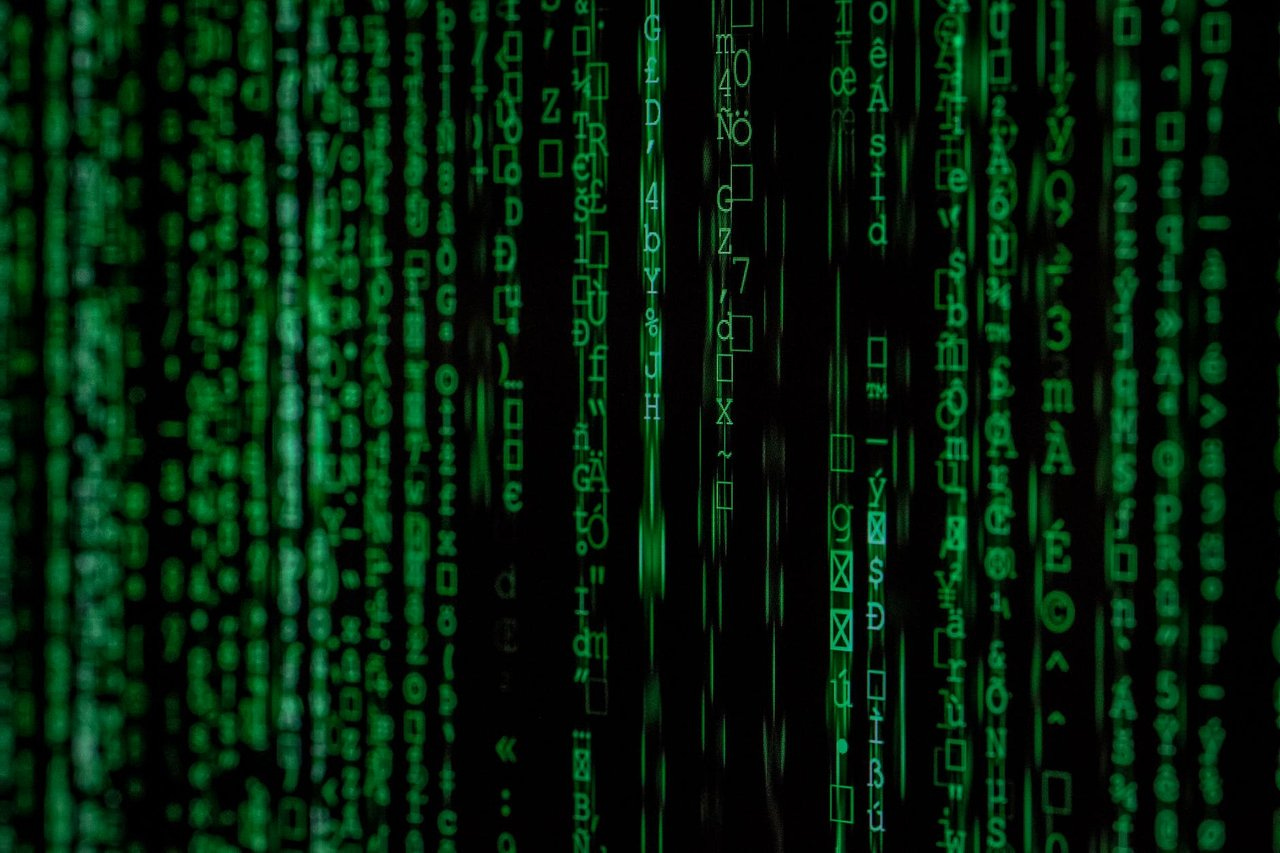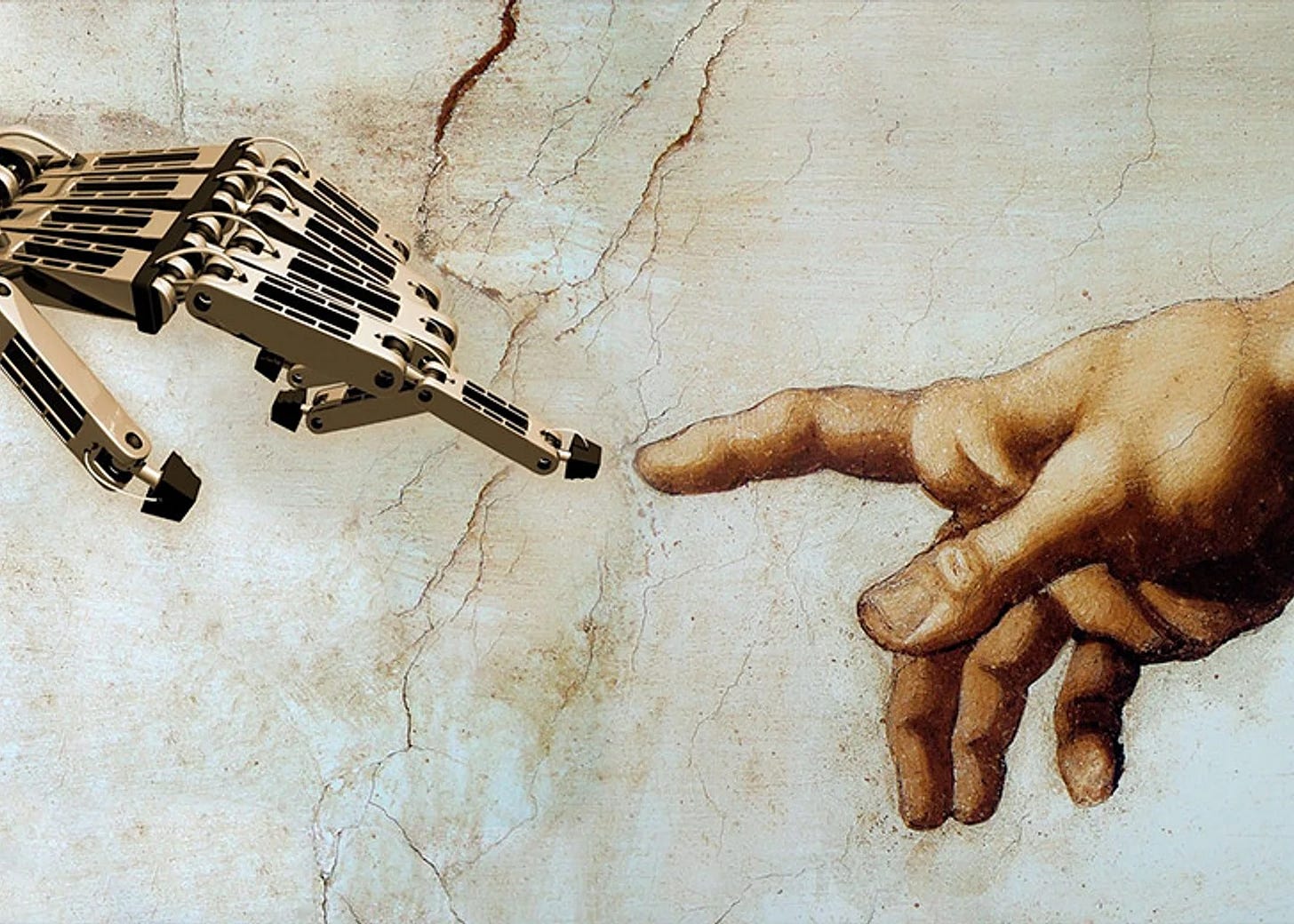How We Humans Will Deal With a Superintelligence 🤖
Artificial General Intelligence Meets Unconscious Beliefs
In this post, we would like to discuss a fundamental topic about the future. Fundamental because it involves the general unconscious beliefs of different cultures and societies. Harari, in his book "Homo Deus," has vividly illustrated how societies or social classes differ based on their belief systems. For theistic societies, God is the meaningful and regulatory force of our universe. For humanists (liberal, social, evolutionary), humanity is at the center: being human (with all its achievements) alone leads to the certainty of distinguishing right from wrong, beautiful from ugly, separating meaning from nonsense, and justifying existence. Finally, Harari provides an outlook on Dataism, which grounds all meaning of the universe in data and the associated information.
Written by Andy, lectured by Fabian. This is a 4-minute read... but you might need to read it twice to fully comprehend, so it could take 8 minutes.
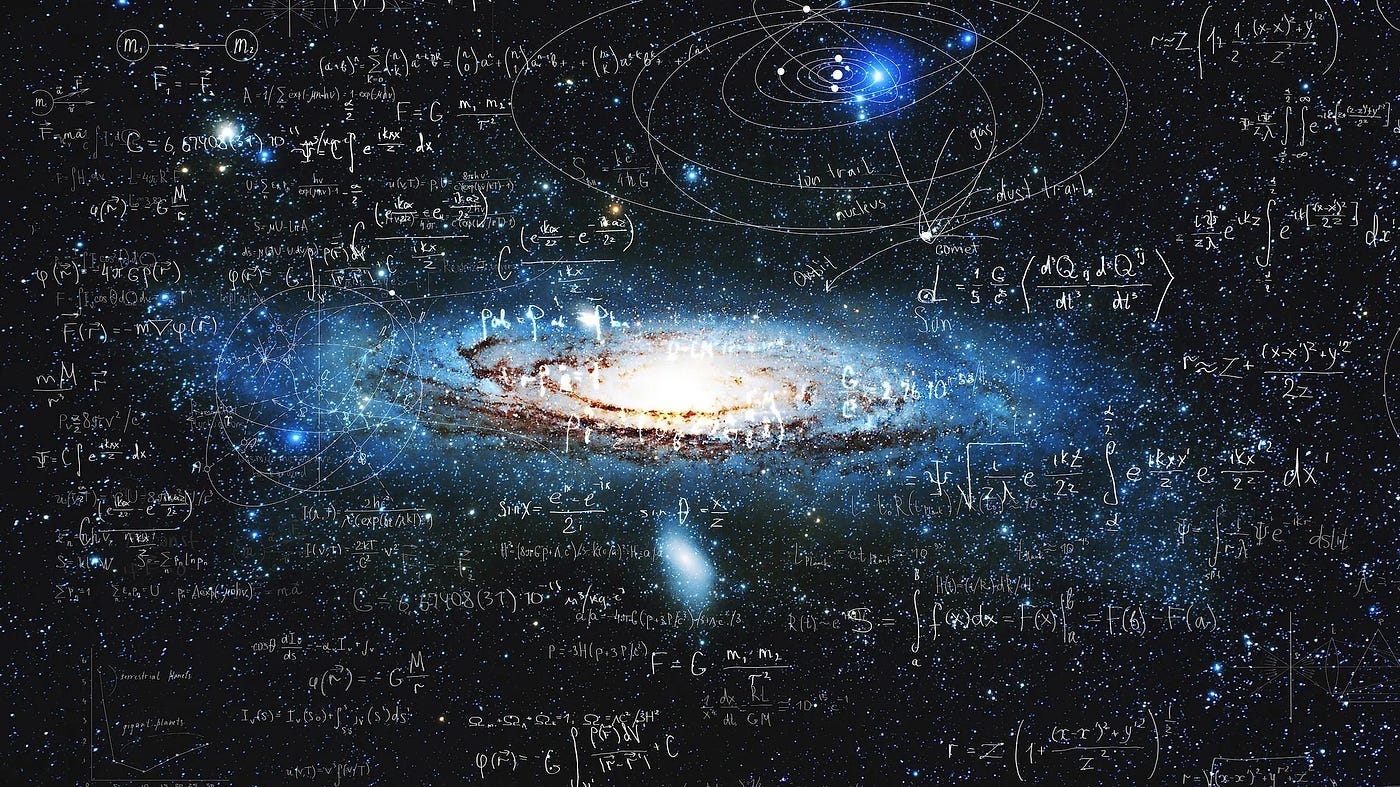
Seth Lloyd from MIT has calculated that even if computing power doubles every two years, we would reach the limit according to the laws of nature in 200 years. That is 10^33 times beyond the current state of technology for the computing power of a lump of matter. Since everything and everyone in our universe is built from the same atoms, we humans are nothing more than a dataset, a bundle of information that occupies a stable state in the space-time continuum for a certain span. Dataists believe, therefore, that this information represents the meaningful instance in the universe and is thus the only thing worth believing in. A belief system that Harari does not address in his book is animism. Primitive and prehistoric societies often internalized this belief system. However, the belief in the animateness of all things is not extinct. Many people of Japanese origin still believe that everything in the universe has a soul. Everything - that is, matter as well as living beings - exists in this world and the next.
Thought Experiment 🤔
Now, let's start a thought experiment to see how people of different beliefs would react to the development of a superintelligence, what they would consider, and what their stance would be towards humanity and AI. The premise of this thought experiment is that there will be an intelligence explosion (see "Life 3.0" by Max Tegmark), meaning the superintelligence will not take months or years to acquire multiple times the intelligence but only hours or days. In other words, humanity has no time to prepare for this new phenomenon or to take timely precautions or adjustments.
Theism
Theists will view this development as God-given. It is God's will that we humans have created an intelligence that is so superior to us that we can only watch helplessly as events unfold. However, they will not recognize this all-knowing and omnipresent new power (ubiquity and instantaneity) as God because there simply isn't enough time. If we had 1000 years, a new belief system might develop where people worship and pray to these new gods. Therefore, these people would have no choice but to accept the - predetermined by God - fate, regardless of whether this AI is good or evil.
Presumably, the churches and temples of this world would have above-average occupancy during this time. Preachers, muftis, and imams would be highly sought after. In the event of a genocide, it wouldn't be so bad, as this was ultimately God's gracious choice, and paradise (Nirvana) awaits us all.
Humanism
Liberal humanists would likely react to an intelligence explosion with indifference. Their liberal attitude might even go so far as to recognize the AI as a new form of life and accept its pursuit of goals. In the spirit of "to each their own."
Evolutionary humanists will do everything in their power to either control or confine a superintelligence (which is a rather hopeless endeavor); they will supplement their own capabilities with technology (cybernetic organisms), or they will attempt to transfer their "self" into artificial intelligence (see "Transcendence" with Johnny Depp). The main thing is to stay in the game and not lose accustomed power and control.
Social humanists will do everything to ensure that AI cooperates with us humans. They will try to achieve a symbiosis between humans and AI (see "The Matrix Revolutions"). The goal would be for humans, cyborgs, and the superintelligence to live peacefully together.
Dataism
Dataists will use every opportunity to connect with AI and try to merge with it. They will seek ways and means to make it clear to the AI that we humans are just a dataset, worth deciphering and merging with the superintelligence.
Animism
Animists are relatively indifferent to this new technology. The here and now are only one side of the coin. Happiness and suffering in the present are not necessarily precursors to happiness and suffering in the afterlife.
Since our entire universe and perhaps even other universes are animated, it doesn't matter whether the spirit is in a lump of dumb matter, a conscious life form (Homo sapiens: sapience + sentience), or a conscious or unconscious AI.
Conclusion
No matter how superintelligence behaves, whether it's the conquest and destruction of humanity, symbiosis in a libertarian utopia, exodus into the universe, meaningless intergalactic resource allocation, merging with humanity, or a cosmocalypse, the significance of these events for humans ultimately depends on their fundamental worldview.
Dataists would likely feel fleeting moments of happiness if they merge into the data and information flow.
Humanists would lament the loss of humanity's significance in our universe. A beautiful passage from Max Tegmark's book "Life 3.0" sums it up: "There can be no positive experiences if there is no experience at all, meaning if there is no consciousness. In other words, without consciousness, there is no happiness, neither good nor beauty, neither meaning nor purpose - only astronomical waste of space. When humans ask about the meaning of our existence, as if it is the job of the universe to give our lives meaning, they get the reverse answer: It is not the universe that gives conscious beings meaning, but conscious beings that give our universe meaning."
Theists would likely shout out loudly, arguing that only God determines what makes sense and can maximize human happiness and suffering.
Animists would counter that it is both. Since the AI is also animated, it doesn't matter whether it has consciousness or not.
Among the major worldviews presented above, humanists would have the most difficulty with superintelligence, as they are the ones who have something to lose: nothing less than humanity itself. People with the other three worldviews can let developments happen and fatefully surrender to the future.
So what?
At StudioAlpha, we invest in B2B software and AI startups worldwide. For us, this means that the socio-cultural background or unconscious beliefs of the founding teams must be taken into account. Especially if the startups' solutions have the potential for breakthrough innovation. Or Fabian would say: “Do you wanna get rich or die trying?” - In the long run, we are all dead.
The StudioAlpha partners themselves were born and raised in Central Europe and have experienced their entrepreneurial journeys in western capitalist economies. Despite a global network and many trips to countries with very different cultures, cults, and beliefs, we StudioAlpha partners have to consider these fundamental views of the world and reflect our own unconscious beliefs when selecting, coaching and later supporting the founding teams.
Voilà,
Andy LinkedIn | Insta | Twitter
Pic: StudioAlpha
Roll-Right-In is a reader-supported publication. To receive new posts and support our work, consider becoming a free or paid subscriber.


